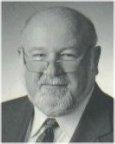Planning worship?
Check out our sister site, ZeteoSearch.org,
for 20+ additional resources related to your search.
- |
User Links
Search Results
On a Bethlehem Hill
Author: Peter Scholtes Appears in 2 hymnals First Line: On a Bethlehem hill the shepherds were sleeping Refrain First Line: Glory, glory, glory, glory Topics: Christian Year Christmas Used With Tune: [On a Bethlehem hill the shepherds were sleeping]
On a Bethlehem Hill
[On a Bethlehem hill the shepherds were sleeping]
Appears in 1 hymnal Composer and/or Arranger: Richard D. Wetzel Tune Sources: White Spiritual Tune Key: d minor Incipit: 13555 45321 34534 Used With Text: On a Bethlehem Hill
[On a Bethlehem hill the shepherds were sleeping]
On a Bethlehem Hill
Author: Peter Scholtes Hymnal: The Worshipbook #536 (1972) First Line: On a Bethlehem hill the shepherds were sleeping Refrain First Line: Glory, glory, glory, glory Topics: Christian Year Christmas Tune Title: [On a Bethlehem hill the shepherds were sleeping]
On a Bethlehem Hill
On a Bethlehem hill the shepherds were sleeping
Author: Peter Scholtes Hymnal: Hymnal for Young Christians. 8th printing #d63 (1966) Languages: English
On a Bethlehem hill the shepherds were sleeping
Peter Scholtes

1938 - 2009 Author of "On a Bethlehem hill the shepherds were sleeping" Peter Scholtes (1938–2009)
Peter was born in Evanston, Illinois and grew up in Oak Park, where he attended Ascension School and Fenwick High School before studying at Quigley and St. Mary of the Lake-Mundelein seminaries. He earned his Masters in Adult Education and Organization Development at Boston University.
Peter wrote the hymn "They'll Know We Are Christians by Our Love" while he was a parish priest at St. Brendan's on the South Side of Chicago in the 1960s. At the time, he was leading a youth choir out of the church basement and was looking for an appropriate song for a series of ecumenical, interracial events. When he couldn't find such a song, he wrote the now-famous hymn in a single day. His experiences at St. Brendan's, and in the Chicago Civil Rights movement, influenced him for the rest of his life.
After working in the public sector in Lynn, Massachusetts and Madison, Wisconsin, Peter became a consultant with Joiner Associates in the 1980s, traveling the globe to help businesses engage employees' talents more fully, humanely, and effectively. He co-authored The Team Handbook, which was named one of The 100 Best Business Books of All Time (in the book of that title). After starting Scholtes Seminars and Consulting, he wrote the classic The Leader's Handbook in 1998, which made the definitive case against performance appraisal—a practice he argued was demoralizing and wrong.
--www.lorenz.com/composers
Peter Scholtes
Richard D. Wetzel
b. 1935 Harmonizer of "[On a Bethlehem hill the shepherds were sleeping]" Richard D. Wetzel (b. 1935) received the Ph.D. in Musicology from the University of Pittsburgh, studying under D�nes Bartha, Theodore Finney, and Robert Snow. He joined the faculty of Ohio University in 1970. Dr. Wetzel's area of emphasis is American Music, and he is published in The New Grove Dictionary of American Music and American National Biography. His book, Frontier Musicians, is a definitive work on German-American music of the 18th and 19th centuries. Wetzel is also a composer and hymnologist, and his liturgical music is found in numerous denominational hymnals, including those published by the Episcopal and Presbyterian churches and the United Church of Christ. Professor Wetzel was the recipient of Ohio University's Outstanding University Professor Award and is currently Chair of Graduate Studies in the School of Music. His arrangement of Geoffrey Ainger's tune, MARY'S CHILD, can be found in the Worship & Rejoice hymnal.
http://www.hopepublishing.com
Richard D. Wetzel


 My Starred Hymns
My Starred Hymns

